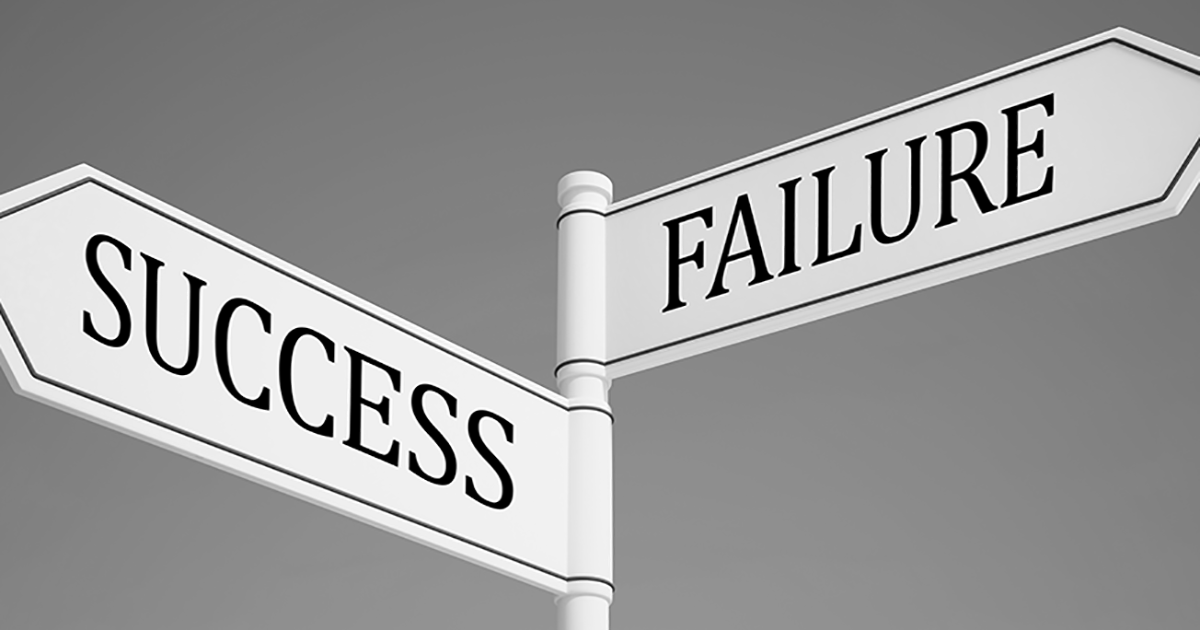Failure Always Should Be An Option
October 16, 2023 •Jeff Owen l Arête Purpose Consulting

"Failure should always be an option. Without risk of failure, you cannot begin to understand or appreciate success."
The Franklin College student did not expect that answer, when he asked for some career advice during a guest lecture.
"I am afraid that your generation might not be willing to take risks. You have to be willing to fail, if you want to succeed," I told the journalism class.
I encouraged the students to embrace failure and take risks -- and if they do so, their generation might get our country out of this economic mess.
I'm afraid, though, today's 20-something is deeply afraid of failure. Fox News and CNN bombard them with stories about bank failures, mortgage lending failures, manufacturing failures, political failures, education failures, parenting failures and the Colts.
The Associated Press reports scare them to death.
The real failure in our country is our growing fear of failure. Throughout our history, our country's freedoms have enabled us to take great risks, and to learn from our mistakes. Great progress often has come from lessons of collapse.
Yet, we seem too scared to walk down unknown and unlit paths today.
A recent report from worldwide recruiting experts the Hays Company found some concerning trends. Jobseekers are now less willing to take a career risk, with Generation X most likely to consider their career moves far more carefully now.
A survey of 668 jobseekers found that 55 percent of Generation X, 54 percent of Baby Boomers and 48 percent of Generation Y say they are now less of a career risk-taker.
That fear of losing a mortgage or declaring bankruptcy when living from paycheck to paycheck seems to be creating a society of life raft paddlers instead of speed boat racers. It's a psychological pall on the 8.2 percent of Americans who have some college education and are unemployed or the 17 million Americans who are working in jobs that require less skills than their bachelor's degree provided them, according to the U.S. Bureau of Labor Statistics.
So, how do we ratchet up the enthusiasm to take career risks? How do we encourage this Franklin College class to go with an idea or a hunch -- even if it means a slight loss to the bottom line?
This is so difficult, according to Bloomberg BusinessWeek, because "for a generation of managers weaned on the rigors of Six Sigma error-elimination programs, embracing failure -- gasp! -- is close to blasphemy."
Stefan H. Thomke, a professor at Harvard Business School and author of Experimentation Matters, told Bloomberg that when he talks to business groups, "I try to be provocative and say: 'Failure is not a bad thing.' I always have lots of people staring at me, [thinking] 'Have you lost your mind?' "
Maybe the obituaries on the death of Steve Jobs will inspire a greater devotion to entrepreneurism. When developing the iconic iPad, iPhone and iPad, Jobs refused to run the concepts past focus groups. He thought such feedback would stymie his creativity, stifle his vision and stall his progress.
In this hunker-down environment, how do we plead with corporate and organization leaders to take the handcuffs off of their employees and promote a culture of risk-taking? How do we get them to think about Q4 2023 instead of Q3 2023?
Tech writer Rick Smith says the answer to today's economic challenges does not require a miracle cure. It's all about confidence.
"Every executive, every founder, every employee who took the chance of working for a startup or companies that live at the bleeding edge of technology deserve medals for courage. By fostering courage, we can create more jobs and get America back to work. Unemployment and underemployment are plagues sapping the lifeblood of this country."
Maybe, we should start reading our history books -- which is filled with examples of great leaders in business and politics, who failed miserably on their way to success.
How many know that Abraham Lincoln had 12 political and business failures before becoming our 16th President?
Are we aware that Thomas Edison also was a poor student, and tried more than 9,000 experiments before successfully creating the first working light bulb?
Do we realize that Bill Gates was a college dropout, and Steven Speilberg left junior high school because of a learning disability?
Have we forgotten that Walt Disney started his first cartoon company in his garage, and it failed because critics said he had no creative ideas?
Did we know that John Grisham's first novel was rejected by 16 agents and 12 publishing companies?
Isn't it important to understand that Henry Ford's first two automobile companies were disastrous and banks turned down financing for a third because they did not believe in his new system of mass production in manufacturing?
Maybe they just need to read the words of the great Winston Churchill, who failed the sixth grade, but later famously said: "Never, never, never, never give up..."
Jeff Owen is a Partner with Arête Purpose Consulting and is a Partner with Clever Dogs Media. He once took a professional risk and it failed miserably.

